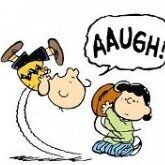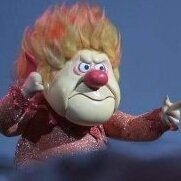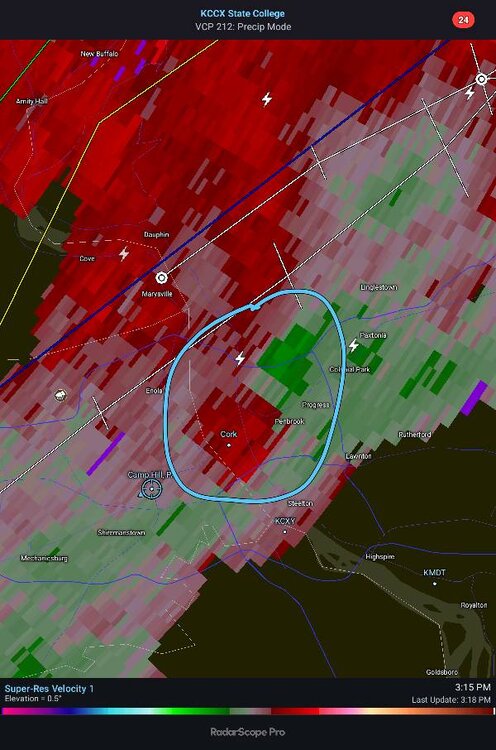All Activity
- Past hour
-
July 2025 Obs/Disco ... possible historic month for heat
Typhoon Tip replied to Typhoon Tip's topic in New England
Seems like Thursday is explosive but the models are skimpy of the QPF nodes you typically see with that. UKMET's okay ..sorta. But the Euro and GFS ..NAM and whatever aren't impressive. Yet, the synoptic cinema has cold mid level with rim arriving after we've cooked CAPE. Just in principle some one some where's getting a tropopause rolling 50k foot top with baseballs -
Big gust a few minutes ago here in Alexandria blew our deck furniture all over the yard. Calmer now with some much needed downpours.
-
It hasn't been like this since 2010
-

July 2025 Obs/Disco ... possible historic month for heat
butterfish55 replied to Typhoon Tip's topic in New England
91/75 Good lord...... -
For June in Fuquay Varina HIghest temp was 98. That was three times. June 23, 24 & 25 rainfall: 4.67 Got danced around by so many storms this past month. Could have had so much more!
-
Pouring rain in the Crystal City area.
-
Pretty active T&L with this one, not much wind at all though.
- 1,250 replies
-
- severe
- thunderstorms
-
(and 2 more)
Tagged with:
-
NWS needs to either relocate that equipment outside the park or just use the data internally and not give access to it to the media or the public. Let the media use LGA or JRB or JFK or some combo of these.
-

July 2025 Obs/Disco ... possible historic month for heat
dryslot replied to Typhoon Tip's topic in New England
85/77°F, Rather Dewey. -
Storm is definitely putting on a light show in Bethesda. Lots of CG.
-
Atmosphere is too juicy. And CAPE is insane. Wouldn’t be surprised to get some spin-ups. .
-

July 2025 Discussion-OBS - seasonable summer variability
LibertyBell replied to wdrag's topic in New York City Metro
Right behind 2010 Don! -
0.65" on the day with more pedestrian stuff to come. Looking forward to the glorious weather this weekend.
-

July 2025 Discussion-OBS - seasonable summer variability
LibertyBell replied to wdrag's topic in New York City Metro
it's a park so there will be a difference temperatures should not be measured in parks (and compared to airports) June 2010 was similar JFK 8 Central Park 4 -
The sky itself literally looks like it's boiling, and as for the humidity, at the water plant in Fogelsville it was off the charts. Even I couldn't stand how oppressive it felt, especially in the sun. I'm up near Tamaqua getting another load now and it's mostly overcast here.
-
1.20” and more on the way.
-
July 2025 Obs/Disco ... possible historic month for heat
Chrisrotary12 replied to Typhoon Tip's topic in New England
90/70 and can't buy a thunderstorm. -

July 2025 Discussion-OBS - seasonable summer variability
LibertyBell replied to wdrag's topic in New York City Metro
wild, JFK hit 102 on July 1, 1963 Tony? Highs: EWR: 100 (1963) NYC: 100 (1901) LGA: 97 (2018) JFK: 102 (1963) Two degrees hotter than EWR lol -
Can't seem to buy a drop in Leesburg. We've seen 0.03" today. That makes for a total of 0.44" over the past two weeks. I'm sure it'll balance out eventually though.
-
-

July 2025 Discussion-OBS - seasonable summer variability
LibertyBell replied to wdrag's topic in New York City Metro
1966, 1999 and 2011 are the three most extreme Julys on this list. -
Watching this move across from my office is crazy - it is now absolutely pouring rain
-

July 2025 Discussion-OBS - seasonable summer variability
LibertyBell replied to wdrag's topic in New York City Metro
1980's historic nationwide heatwave is used as a textbook example of how lethal heat can be. https://en.wikipedia.org/wiki/1980_United_States_heat_wave The 1980 United States heat wave was a period of intense heat and drought that wreaked havoc on much of the Midwestern United States and Southern Plains throughout the summer of 1980. It was among the most destructive and deadliest natural disasters in U.S. history, claiming at least 1,700 lives.[1] Because of the massive drought, agricultural damage reached US$20 billion (equivalent to $76 billion in 2024 dollars[2]).[3] It is among the billion-dollar weather disasters listed by the National Oceanic and Atmospheric Administration. Causes [edit] The heat wave began in June when a strong high pressure ridge began to build in the central and southern United States allowing temperatures to soar to 90 °F (32 °C) almost every day from June to September. The high pressure system also acted as a cap on the atmosphere inhibiting the development of thunderstorm activity, leading to exceptionally severe drought conditions. The heat wave paused briefly when the decaying Hurricane Allen disrupted the prevailing weather pattern. Effects [edit] The drought and heat wave conditions led many Midwestern cities to experience record heat. In Kansas City, Missouri, the high temperature was below 90 °F (32 °C) only twice and soared above the century mark (100 °F or 38 °C) for 17 days straight; in Memphis, Tennessee, the temperature reached an all-time high of 108 °F (42 °C) on July 13, 1980, part of a 15-day stretch of temperatures above 100 °F (38 °C) that lasted from July 6 to 20. In Indianapolis, Indiana on July 15, the temperature reached 100 °F (38 °C) for the first time since 1954. In Dallas/Fort Worth, Texas, high temperatures exceeded 100 °F (38 °C) a total of 69 times, including a record 42 consecutive days from June 23 to August 3,[4] of which 28 days were above 105, and five days above 110. The area saw 29 days in which the previous record high temperature was either broken or tied, including its all-time high when the temperature hit 113 °F (45 °C) on three consecutive days (June 26 and 27 at DFW Airport and June 28 at Dallas Love Field). -

July 2025 Discussion-OBS - seasonable summer variability
LibertyBell replied to wdrag's topic in New York City Metro
you're losing the forest for the trees. Since you love AI so much, here is an AI briefing on that summer: AI Overview The summer of 1980 was exceptionally hot, particularly in the Southern and Southeastern United States . Key aspects of the 1980 heat wave: Duration and Intensity: The heat wave extended from June to September in some areas, driven by a strong, persistent high-pressure system. Dallas/Fort Worth experienced temperatures exceeding 100°F for almost six consecutive weeks. Wichita Falls, Texas, recorded an unprecedented temperature of 117°F. In Kansas City, Missouri, temperatures reached 100°F or more for 17 consecutive days. Dallas-Fort Worth set numerous heat records, including the all-time highest temperature of 113°F (on June 26th and 27th) and the longest streak of days with high temperatures of at least 100°F (42 days). The summer of 1980's average temperature in July for Dallas-Fort Worth was 92°F, making it the hottest month on record based on average temperature. Impact on the Population: Extreme heat was a major factor in a significant number of deaths, with estimates ranging from 1,250 to 10,000 nationwide. In Missouri alone, there were 389 heat-related deaths. In St. Louis and Kansas City, deaths from all causes increased significantly in July 1980 compared to previous years without heat waves. Elderly individuals and the urban poor were particularly vulnerable. Many lacked air conditioning, making it difficult to cope with the extreme heat. Drought Conditions: The high-pressure system inhibited thunderstorm development, leading to severe drought conditions. The Ozarks, for instance, were under extreme drought conditions. The dry conditions contributed to even higher temperatures. Economic Impact: The heat and drought severely damaged crops and livestock, leading to estimated agricultural losses of around $20 billion. Corn and soybean harvests were reduced by up to 50% in some areas. Livestock suffered greatly, with thousands of cattle deaths reported. Dairy cow milk production declined. These losses impacted the economy, causing food prices to rise and contributing to the failure of some family farms. In summary, the summer of 1980 was characterized by a widespread and prolonged heat wave that caused significant human mortality, agricultural losses, and economic damage across the United States. -

July 2025 Discussion-OBS - seasonable summer variability
LibertyBell replied to wdrag's topic in New York City Metro
You can still beat the heat by traveling outside the UHI by the way, heat is relative, it will always be cooler outside of the UHI.










